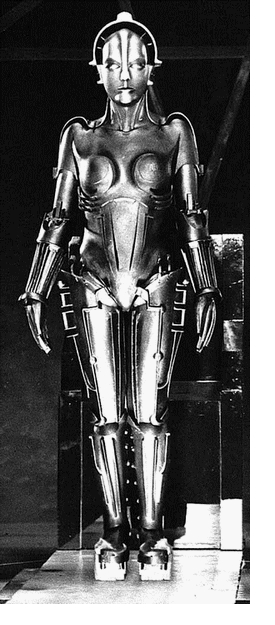
Fifty years ago, if you were a company building automobiles or telecommunications equipment, you would have employed an assembly line full of workers. There also would have been people kitting parts, making inspections, doing tests, even running errands. If you operated a catalog company, you might have warehouse full of people loading and unloading goods, taking inventory, generating reports and packing and shipping goods. If you manufactured metal goods, you might employ several grades of craftsmen, from apprentice to master machinist, as well as cutters and welders, finish workers, inspectors, packers and shippers.
Much less so today. Automobiles and electronics and every other sort of manufactured good are increasingly made on robotic lines. From painting to welding to complex assembly, robots are replacing people. Warehouses can run almost autonomously, with goods stored in a 3D grid that is accessed, inventoried and replenished by increasingly intelligent networks of machines and computers. Jeff Bezos would like to robotize even the delivery of those goods via autonomous drones. That seems entirely doable, though the thought of computer controlled helicopters moving through the skies upsets some people.
Sixty six years ago, almost to the day, Isaac Asimov’s novel I, Robot was published. It was followed by four more novels over 30 years as well as 38 short stories in what became known as The Robot Series. In these books, Asimov explored all sorts of aspects of a robot populated world, including the dangers they might pose to people, problems with machines that think with digital logic, their inevitable evolution from simple mechanisms to organo-machines that were difficult to differentiate from human beings, except for their vastly superior intellectual capacity and increased lifespan, and some of the implications of that.
In a society relieved of all sorts of menial labor and drudgery, Asimov envisioned something of a Golden Age of Man. Material goods would be so cheaply and easily made that no one would lack for any basic goods, and most people would enjoy a standard of living and a degree of leisure time available now to only the extremely wealthy. That’s a view with some precedent in how other technologies have improved our lot, so it’s one possible future.
I find myself wondering, though. Suppose something like that were to come to pass. After all, we’re seeing signs of its development now. How does this future society actually work? How are people employed? What does one do to earn a living in a society where work is done by machines? We see this problem already, which tells us we’re farther along this road than maybe we realize. All the people that are not employed in Jeff Bezos’ warehouses or building electronics assemblies or automobiles, what do they do? In the past, when people were displaced from agriculture by machinery, they went to cities and were employed in large scale industrial and retail businesses. That is no longer the case. Not only have the manufacturing base dispersed across the globe chasing cheaper labor and fewer rules and regulations, even the human staffed retail store is increasingly in question as a viable model.
This is all creative destruction in action, I know. And we can wave our hands and say, Well, people will adapt, they always have! Yes they will. But to what? Everyone can’t be – and doesn’t want to be – a robotics designer or research chemist or test technician in a robotics factory. Will there simply be more people to do fewer jobs? Will the work week get reduced to 3 days on, 4 days off? I’m trying to imagine a world where the same or more people are available but less work needs to be done by them. And if the answer is more leisure time, is that necessarily a good thing? Do we get a Golden Age, or an Age of Sloth, where everyone gets crazier and more destructive in an attempt to amuse themselves. Who cares, eh? The robots will clean up the mess.
And is a robotic recursion process possible, where robots set about designing and building better robots? If we assume cookbook engineering can be encoded into a machine brain, millions of possible combinations may be scanned and modeled and simulated for each mechanism and each circuit, always searching for an optimal solution. And as everyone from Asimov to Clarke have asked, when is sentience reached and will we recognize it when it occurs? And then what? Our society is the early stages of major, ground shifting changes. There’s a lot on the horizon we haven’t even begun to think about to the level necessary. And how do we stay up with these changes if our political class is intent on bankrupting us and destroying our civilization?
Elon Musk compares AI efforts to ‘Summoning the Demon’
BTW, this is a talk he gave at MIT, and is well worth watching in full.
Walter Schulze-Mittendorff’s ‘Maschinenmensch’ simulacrum in crystal.
I would love to own one these. The large cylindrical version.